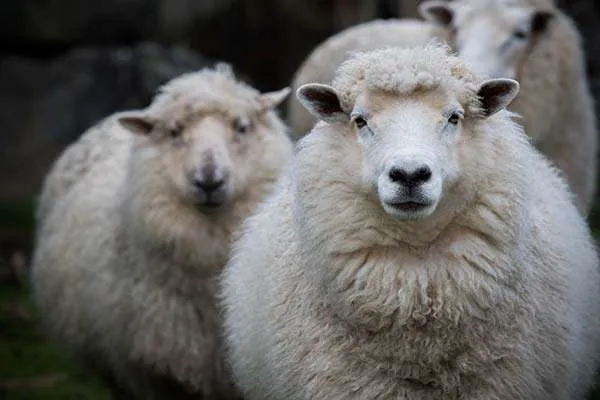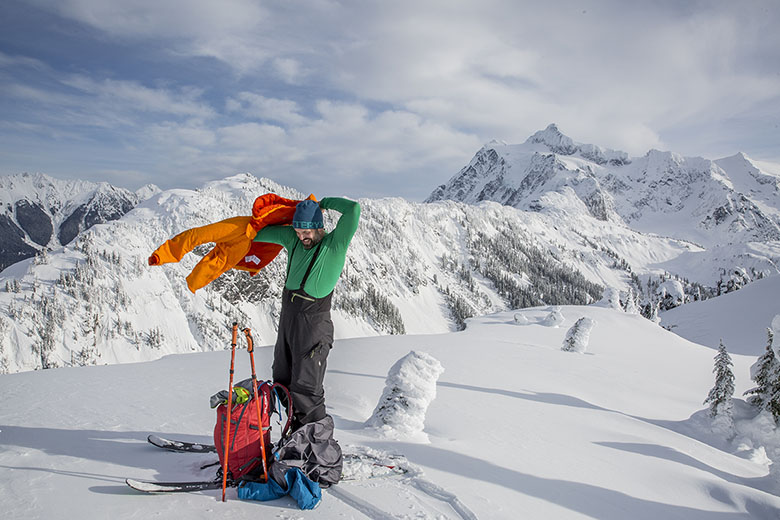What Is It That Makes Merino Sheep Distinct From Other Types Of Sheep?
Merino sheep possess distinct characteristics from other types. Merino wool- Merino sheep are well-known for their luxurious wool. It is soft and finer than that of other sheep breeds. Merino Wool is sought-after due to its versatility, warmth and ease of use.
Adaptability- Merino wool sheep are extremely flexible to changes in environments and climates. They are able to thrive in both cold and hot climates and can tolerate a wide range of temperatures.
Resilience - Merino sheep are known for their strength and durability. They are immune to most common illnesses and can endure harsh conditions.
Fertility- Merino sheep are characterized by a high fertility rate and can produce multiple offspring in one pregnancy.
Merino sheep have a distinct pattern of grazing that helps ensure their health and well-being. They feed in a cautious and selective way that assists them in avoiding excessive grazing and toxic plants.
Breeding- Merino sheep are typically specifically bred to make the finest quality wool. The result is a wide variety of Merino sheep breeds, each with its own characteristics and unique qualities.
Merino sheep, generally are highly sought-after due to their high-quality wool, their ability to adapt to changes, resilience, and other particular attributes. They are a significant source of wool and are highly respected by breeders and farmers all over the world.

How Do Lightweight, Midweight And Heavyweight Merino-Wool Base Layers Are Different?
The main difference between lightweight, midweight, and heavyweight Merino wool base layers is the weight and warmth of the fabric. Here is a breakdown of the differences among the three types of base layer. Lightweight Merino wool base layers are typically composed of a fine and breathable fabric that is able to withstand cold and mild weather. This is the most suitable kind of base layer to use for activities that require a lot of energy. It is essential to have a fabric with good wicking capabilities to keep your body cool. They can also be used to cover other layers in more frigid climates.
The middleweight Merino wool base layer is constructed of thicker fabrics that provide more warmth and insulation than thinner base layers. The base layer is able to be used in cold or warm weather conditions. It's ideal for moderate-intensity activities and those who don't sweat a lot.
The heavier Merino wool base layers comprised of the most warm and dense fabric are ideal for colder conditions. This base layer is great for sports that are light in intensity, and where you won't sweat a lot for example, such as skiing or snowshoeing.
If you are deciding on the right Merino wool base layer for your requirements, take into consideration the weather conditions and the level of activity you will be engaging in. For high-intensity activities the lightweight base layer is the most suitable option. A middle-weight base layer is ideal for warm to cold weather as well as activities of moderate to low intensity. For low-intensity sports and cold weather, a thicker base layer is more appropriate. Consider that you can layer down or up in accordance with the weather conditions, so it's best to pick a layer that's slightly heavier than it is too heavy. Consider the fit of your base layer, and make sure it's comfortable and gives you a full motion. Go Follow the best merino wool base layer tips for more advice including woolx women's wool leggings, paradox merino wool, lands end merino wool base layer, merino wool thermals sale, icebreaker merino base layer, filson merino wool base layer, smartwool womens long sleeve, smartwool base layer bottoms mens, icebreaker merino wool base layer women's, merino icebreaker base layer, with more- Recommended Info For Picking Between Yak And Merino Wool 141a295 and Great Advice For Selecting Between Yak And Merino Wool.

How Do You Choose The Most Suitable Ski Base Layer For Merino And Yak Wool Combined?
There are numerous things to consider when choosing the most appropriate combination of Merino and Himalayan wool for your ski base layers. Here are some of the most important things to keep in mind: Weather conditions Consider the temperature and weather conditions that you'll be ski-ing in. A base layer with greater insulation, such as Himalayan Yak wool, might be the best choice when the weather is very cold. If the temperature is more mild then a thinner Merino wool base layer could be more appropriate.
Activity level - It is important to consider your activity level as well as the amount you sweat. Merino wool or Merino wool could be the best option when you sweat a lot.
Comfort- Choose a base that feels great and is easy to move around in. Base layers should move with you and allow for full range of motion. Avoid any base layers that feel too restricting or tight. This can create discomfort and reduce mobility.
Individual preferences. The best base layer mix is determined by your individual preferences. Some prefer a more thick layer of insulation whereas others prefer a lighter one. Test different combinations to see what is most comfortable and most effective to your preferences.
The most effective combination of Merino wool with Himalayan Yak wool for ski base layers will depend on your needs and the conditions under which you will be skiing. When choosing the right base layer, you should take into consideration the weather conditions, your activity level, and your individual preferences. This will help ensure that you remain dry and comfortable while on the slopes. See Follow the top best hiking mid layer info for site examples including mens merino thermal leggings, men's merino 250 base layer pattern bottom, castelli merino wool base layer, best merino wool base layer for stand hunting, rohan merino wool base layer, smartwool merino 150 shirt, merino cycling base layer sale, best hiking thermals, best women's merino wool base layer, kryptek base layers, and more- Top Advice For Picking Between Yak And Merino Wool and Top Suggestions For Choosing Between Yak And Merino Wool.

What Are Alternatives To Yak Wool Or Merino For Ski Gear? And Why Do They Have A Lower Quality?
There are many other fabrics than Merino and Himalayan yak wool that can be used in ski apparel. However, they might not be as effective in keeping you warm, dry and comfortable when you're on the slopes. Below are some alternatives to these fabrics, and some of the reasons they might be inferior Cotton. Cotton is a standard fabric used in clothing, but it's not a good option for skiing. Cotton can absorb moisture and stay wet, making you feel wet and cold. You won't be warm in cold weather since cotton isn't insulated.
Polyester- Polyester is a synthetic material that is commonly used in ski clothing. Polyester is quick-drying and water-wicking, but it doesn't provide the same insulation and warmth of Merino wool. Many people find polyester less breathable, and therefore less comfortable than natural fibres.
Nylon-Nylon is an artificial fabric, which is known for being durable and resistant to scratches. Nylon-Nylon can be used as ski gear, but it isn't able to provide warmth or insulation. It's less breathable than natural fibers like Merino Wool, and is uncomfortable to wear for prolonged periods.
Fleece- Fleece is a well-loved mid-layering fabric used for skiing. Although it can provide warmth and insulation however, it's not as efficient as natural fibers such as Merino wool or Himalayan yak wool. Many people find fleece less breathable than natural fibers and more susceptible to absorbing moisture.
There are many other fabrics than Merino wool and Himalayan yak wool that can be used to make ski clothes. However, these types of fabrics may not be as efficient in keeping you dry and warm when you're on the slopes. Merino wool, Himalayan yak wool, and other natural fibers are better for ski clothing. They provide superior insulation and warmth, as well as air-flow, moisture management, and warmth.
Merino sheep possess distinct characteristics from other types. Merino wool- Merino sheep are well-known for their luxurious wool. It is soft and finer than that of other sheep breeds. Merino Wool is sought-after due to its versatility, warmth and ease of use.
Adaptability- Merino wool sheep are extremely flexible to changes in environments and climates. They are able to thrive in both cold and hot climates and can tolerate a wide range of temperatures.
Resilience - Merino sheep are known for their strength and durability. They are immune to most common illnesses and can endure harsh conditions.
Fertility- Merino sheep are characterized by a high fertility rate and can produce multiple offspring in one pregnancy.
Merino sheep have a distinct pattern of grazing that helps ensure their health and well-being. They feed in a cautious and selective way that assists them in avoiding excessive grazing and toxic plants.
Breeding- Merino sheep are typically specifically bred to make the finest quality wool. The result is a wide variety of Merino sheep breeds, each with its own characteristics and unique qualities.
Merino sheep, generally are highly sought-after due to their high-quality wool, their ability to adapt to changes, resilience, and other particular attributes. They are a significant source of wool and are highly respected by breeders and farmers all over the world.

How Do Lightweight, Midweight And Heavyweight Merino-Wool Base Layers Are Different?
The main difference between lightweight, midweight, and heavyweight Merino wool base layers is the weight and warmth of the fabric. Here is a breakdown of the differences among the three types of base layer. Lightweight Merino wool base layers are typically composed of a fine and breathable fabric that is able to withstand cold and mild weather. This is the most suitable kind of base layer to use for activities that require a lot of energy. It is essential to have a fabric with good wicking capabilities to keep your body cool. They can also be used to cover other layers in more frigid climates.
The middleweight Merino wool base layer is constructed of thicker fabrics that provide more warmth and insulation than thinner base layers. The base layer is able to be used in cold or warm weather conditions. It's ideal for moderate-intensity activities and those who don't sweat a lot.
The heavier Merino wool base layers comprised of the most warm and dense fabric are ideal for colder conditions. This base layer is great for sports that are light in intensity, and where you won't sweat a lot for example, such as skiing or snowshoeing.
If you are deciding on the right Merino wool base layer for your requirements, take into consideration the weather conditions and the level of activity you will be engaging in. For high-intensity activities the lightweight base layer is the most suitable option. A middle-weight base layer is ideal for warm to cold weather as well as activities of moderate to low intensity. For low-intensity sports and cold weather, a thicker base layer is more appropriate. Consider that you can layer down or up in accordance with the weather conditions, so it's best to pick a layer that's slightly heavier than it is too heavy. Consider the fit of your base layer, and make sure it's comfortable and gives you a full motion. Go Follow the best merino wool base layer tips for more advice including woolx women's wool leggings, paradox merino wool, lands end merino wool base layer, merino wool thermals sale, icebreaker merino base layer, filson merino wool base layer, smartwool womens long sleeve, smartwool base layer bottoms mens, icebreaker merino wool base layer women's, merino icebreaker base layer, with more- Recommended Info For Picking Between Yak And Merino Wool 141a295 and Great Advice For Selecting Between Yak And Merino Wool.

How Do You Choose The Most Suitable Ski Base Layer For Merino And Yak Wool Combined?
There are numerous things to consider when choosing the most appropriate combination of Merino and Himalayan wool for your ski base layers. Here are some of the most important things to keep in mind: Weather conditions Consider the temperature and weather conditions that you'll be ski-ing in. A base layer with greater insulation, such as Himalayan Yak wool, might be the best choice when the weather is very cold. If the temperature is more mild then a thinner Merino wool base layer could be more appropriate.
Activity level - It is important to consider your activity level as well as the amount you sweat. Merino wool or Merino wool could be the best option when you sweat a lot.
Comfort- Choose a base that feels great and is easy to move around in. Base layers should move with you and allow for full range of motion. Avoid any base layers that feel too restricting or tight. This can create discomfort and reduce mobility.
Individual preferences. The best base layer mix is determined by your individual preferences. Some prefer a more thick layer of insulation whereas others prefer a lighter one. Test different combinations to see what is most comfortable and most effective to your preferences.
The most effective combination of Merino wool with Himalayan Yak wool for ski base layers will depend on your needs and the conditions under which you will be skiing. When choosing the right base layer, you should take into consideration the weather conditions, your activity level, and your individual preferences. This will help ensure that you remain dry and comfortable while on the slopes. See Follow the top best hiking mid layer info for site examples including mens merino thermal leggings, men's merino 250 base layer pattern bottom, castelli merino wool base layer, best merino wool base layer for stand hunting, rohan merino wool base layer, smartwool merino 150 shirt, merino cycling base layer sale, best hiking thermals, best women's merino wool base layer, kryptek base layers, and more- Top Advice For Picking Between Yak And Merino Wool and Top Suggestions For Choosing Between Yak And Merino Wool.

What Are Alternatives To Yak Wool Or Merino For Ski Gear? And Why Do They Have A Lower Quality?
There are many other fabrics than Merino and Himalayan yak wool that can be used in ski apparel. However, they might not be as effective in keeping you warm, dry and comfortable when you're on the slopes. Below are some alternatives to these fabrics, and some of the reasons they might be inferior Cotton. Cotton is a standard fabric used in clothing, but it's not a good option for skiing. Cotton can absorb moisture and stay wet, making you feel wet and cold. You won't be warm in cold weather since cotton isn't insulated.
Polyester- Polyester is a synthetic material that is commonly used in ski clothing. Polyester is quick-drying and water-wicking, but it doesn't provide the same insulation and warmth of Merino wool. Many people find polyester less breathable, and therefore less comfortable than natural fibres.
Nylon-Nylon is an artificial fabric, which is known for being durable and resistant to scratches. Nylon-Nylon can be used as ski gear, but it isn't able to provide warmth or insulation. It's less breathable than natural fibers like Merino Wool, and is uncomfortable to wear for prolonged periods.
Fleece- Fleece is a well-loved mid-layering fabric used for skiing. Although it can provide warmth and insulation however, it's not as efficient as natural fibers such as Merino wool or Himalayan yak wool. Many people find fleece less breathable than natural fibers and more susceptible to absorbing moisture.
There are many other fabrics than Merino wool and Himalayan yak wool that can be used to make ski clothes. However, these types of fabrics may not be as efficient in keeping you dry and warm when you're on the slopes. Merino wool, Himalayan yak wool, and other natural fibers are better for ski clothing. They provide superior insulation and warmth, as well as air-flow, moisture management, and warmth.















:max_bytes(150000):strip_icc()/shutterstock_274220507-5bfc33a546e0fb00517d6e77.jpg)
























